Author Johann Hari and his publisher, Bloomsbury, have issued apologies after a false claim in Hari’s latest book, Magic Pill, wrongly stated that Observer restaurant critic Jay Rayner had taken the diabetes drug Ozempic.
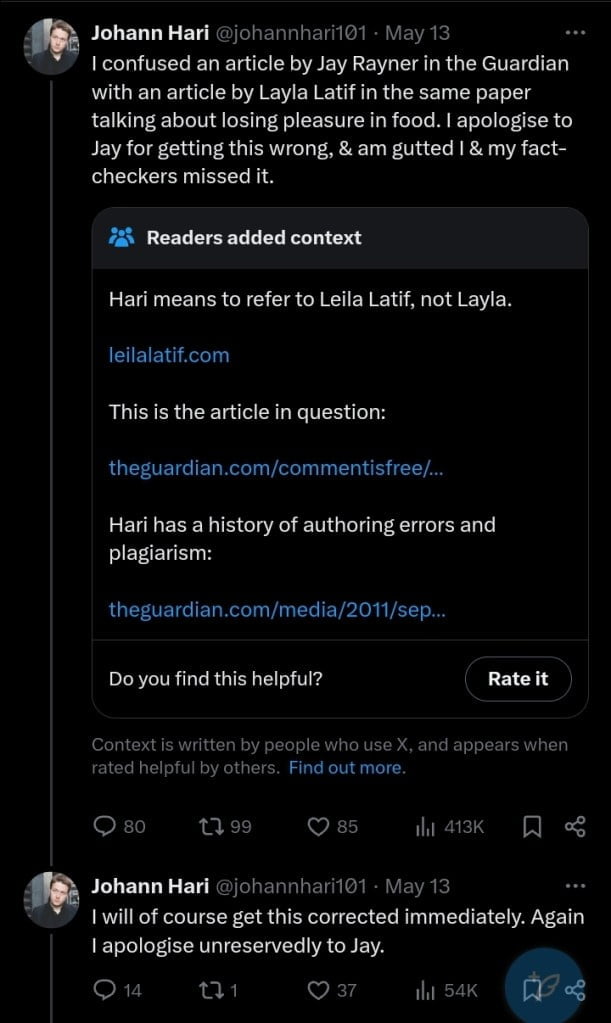
In his book, Hari claimed that Rayner said Ozempic “robbed him of his pleasure in food so severely that even in great restaurants in Paris, he couldn’t find any joy.” Rayner refuted the claim in a post on X (formerly Twitter), calling it “complete and utter bollocks” and asserting that he has “never used Ozempic or anything similar.” He linked to a column where he explained why he would never take such drugs and expressed his confusion over why Bloomsbury “did not go through the text with a fine tooth comb.”
Read: Author Cait Corrain loses book deal over secret review bombing
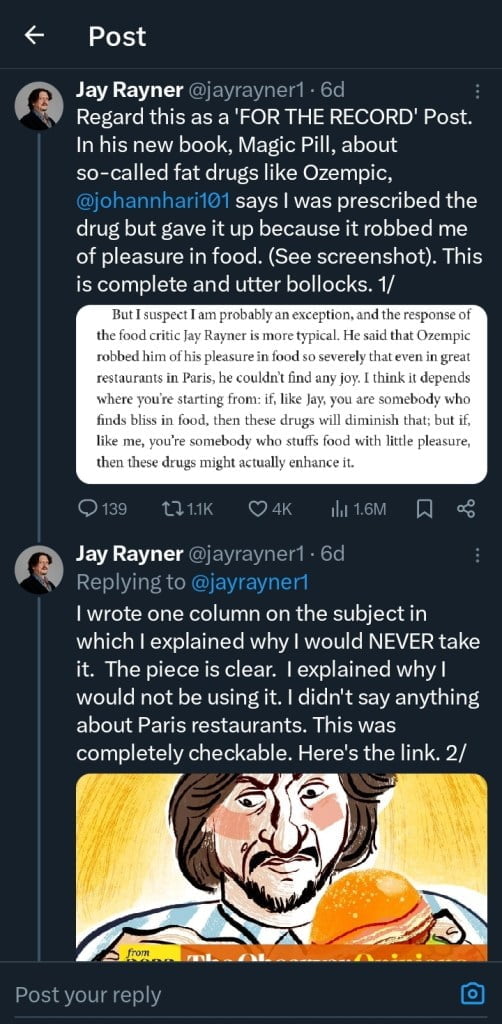
Hari has since apologised to Rayner, explaining that he had confused Rayner’s article with a different piece by Leila Latif for The Guardian. Latif had written about her experience of losing her appetite due to a new medication for a longstanding health condition, not semaglutide, the active ingredient in Ozempic. The original subheading of Latif’s article mistakenly mentioned semaglutide, which was corrected with an explanatory footnote.
Latif responded to Hari’s confusion by stating, “You are misrepresenting a very personal piece of writing.” She clarified that she has never taken semaglutide.
Bloomsbury apologises over Johann Hari Magic Pill book claim
Bloomsbury responded to Rayner’s post on X, stating, “We sincerely apologise for any distress caused. This is an unfortunate mistake and we will correct it across all formats. We confirm there was a fact checking process in place for the book. The error occurred when an article was wrongly attributed to you.”
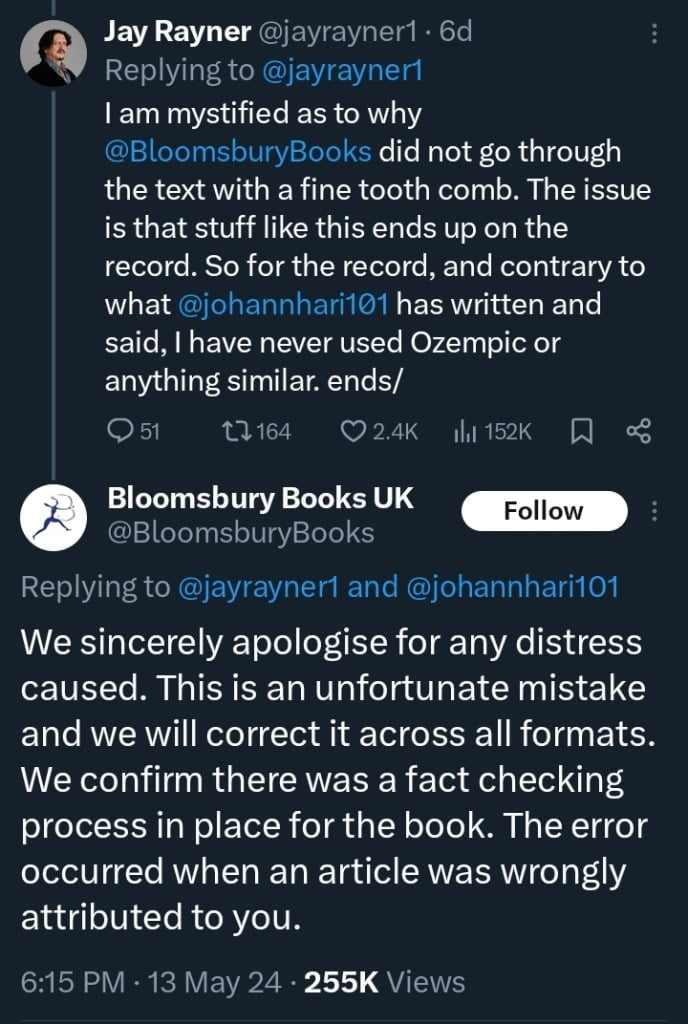
Hari expressed regret in an interview with The Guardian, saying, “I’m really sorry that I made this mistake in this paragraph of my book. I apologise to the journalists involved, and the distress it has caused them.” He added that he was “gutted” to have made this error, and that it was able to make it “through the fact-checking processes that I put in place to spot any mistakes I might make. I take full responsibility for it.”
Read: Hugo Awards controversy: R. F. Kuang’s Babel excluded
Rayner and Latif are in contact with Bloomsbury to address the situation. Rayner mentioned he is “pleased” that the publisher has agreed to correct the text and include errata slips in existing UK copies. However, Latif noted that Hari has not yet apologised to her. “For any person, but particularly if you’re a woman, and a woman of colour, discussions around your body feel very, very difficult,” she said. It is “massively inappropriate for him to be discussing people’s relationships with their weight.”
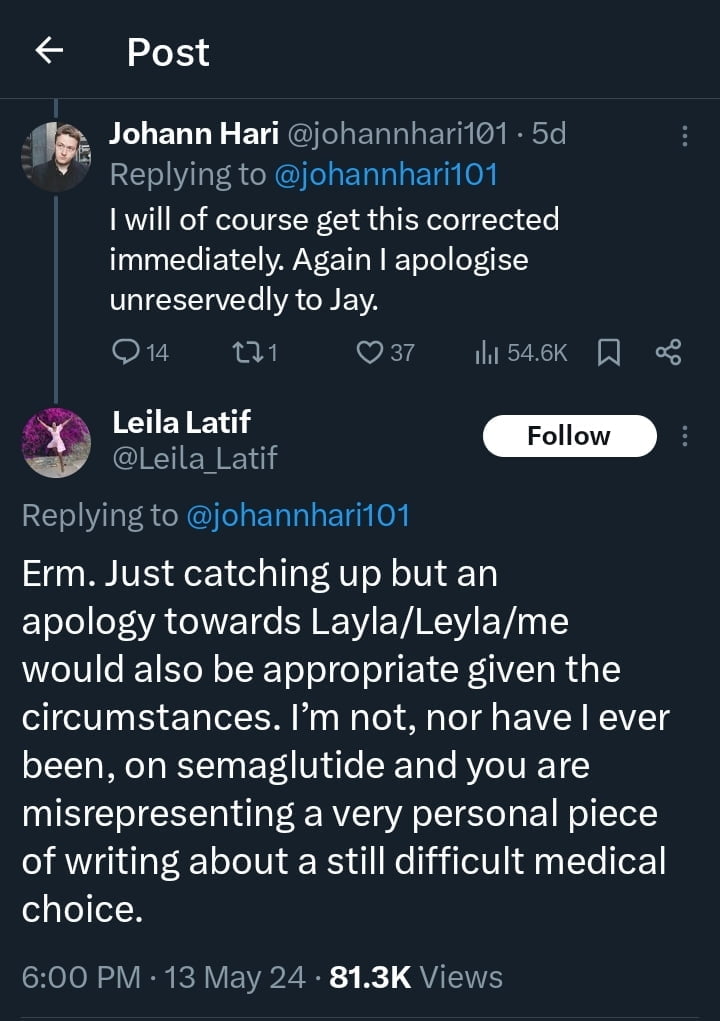
A spokesperson from Bloomsbury confirmed they are “in the process of correcting the mistake,” and added, “Bloomsbury is very proud to publish Johann Hari. We have seen first hand how incredibly hard he has worked on his four books, which have deservedly had an extraordinary impact all over the world.”
Rayner discovered the incorrect claim via a Google Alert for his name, which he keeps active “specifically for this sort of thing.” The claim had appeared in transcripts of two podcasts where Hari had spoken, including Steven Bartlett’s Diary of a CEO.
Johann Hari controversy
Hari has faced similar issues in the past. In 2011, he admitted to plagiarism, leading to his suspension from The Independent. In a 2018 interview with The Guardian, he confessed, “I did two things that were completely wrong. One is that when I interviewed people I often presented things that had been said to other journalists or had been written in books as if they had been said to me, which was not truthful. The second is that I edited Wikipedia entries regarding other people under a pseudonym and, sometimes, in very nasty ways.”
Due to previous scandals, Hari made audio recordings of some interviews conducted for his book “Chasing the Scream” available online. However, writer Jeremy Duns condemned these recordings, stating that out of a sample of dozens of clips, “in almost all cases, words in quotes had been changed or omitted without being noted, often for no apparent purpose, but in several cases to subtly change the narrative.” In a review for “New Matilda”, Michael Brull also expressed reservations about Hari’s citation practices, highlighting contradictions between the narrative in “Chasing the Scream” and a 2009 article by Hari.
Read: What is going on with Joe Arden? Narrator responds to misconduct claims
Journalist Zoe Stavri criticised Hari’s book “Lost Connections” for lacking citations for key claims, such as “between 65 and 80% of people on antidepressants are depressed again within a year.” She noted Hari’s reliance on the work of a single researcher, his treatment of research on a single class of antidepressants as if it applied to all antidepressants, and his conflation of stress and depression. Psychologist and science writer Stuart Ritchie echoed these concerns, criticising Hari for repeatedly making the claim that “between 65 and 80% of people on antidepressants are depressed again within a year” without a clear citation. Ritchie traced the source of this claim to a pop science book rather than a review of scientific literature.
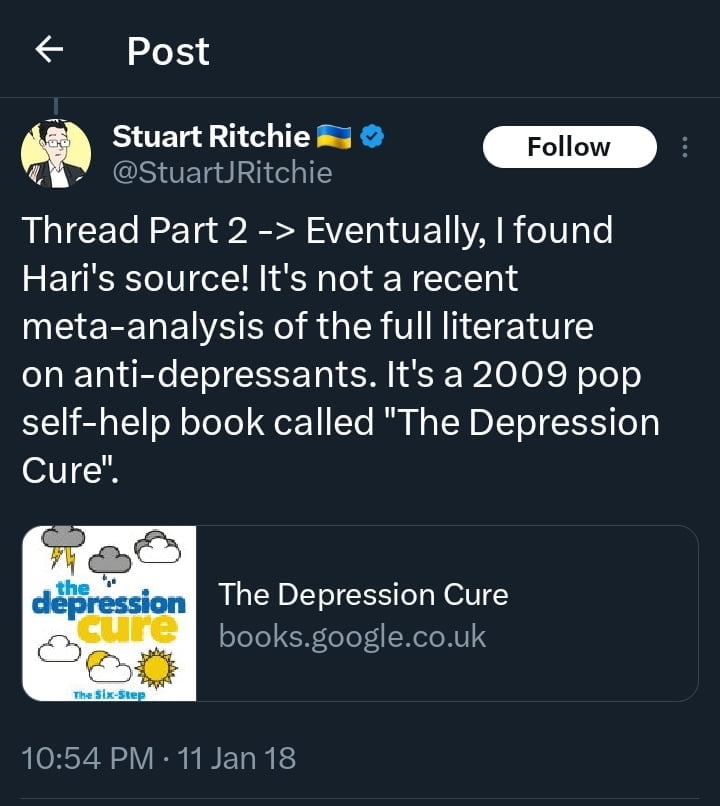
Both Ritchie and neuroscientist Dean Burnett denounced Hari’s book “Stolen Focus” for failing to cite strong evidence for the claim of shrinking attention spans. They also noted that Hari presented mainstream psychological concepts as niche ideas that he had discovered.
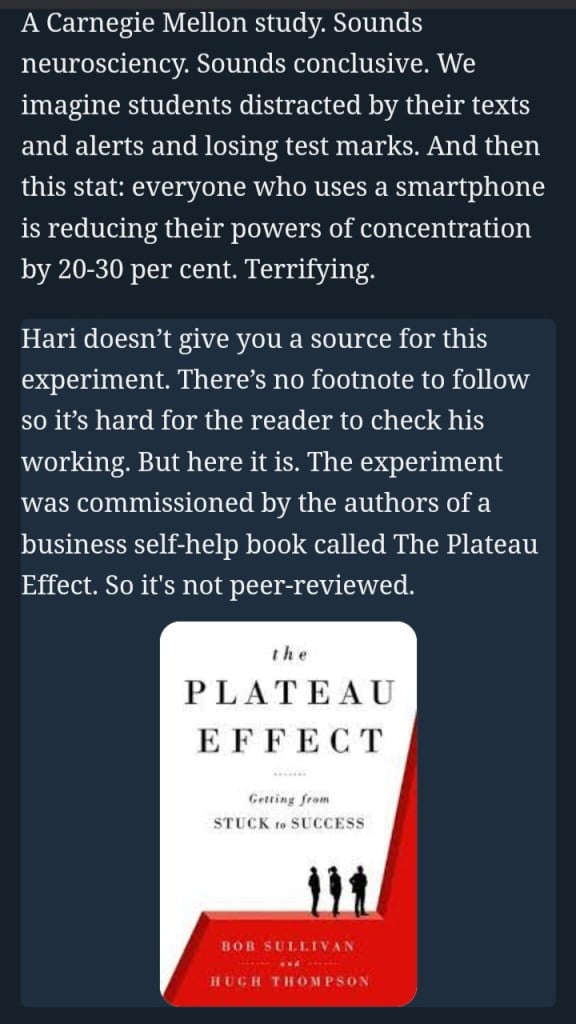
Writer and broadcaster Matthew Sweet investigated some of the claims in “Stolen Focus” and found that Hari had failed to cite primary sources for some studies and misrepresented the results of studies suggesting that multitasking could have benefits under certain conditions.
[…] Read: Johann Hari sorry over incorrect book claims about Jay Rayner and other controversies […]